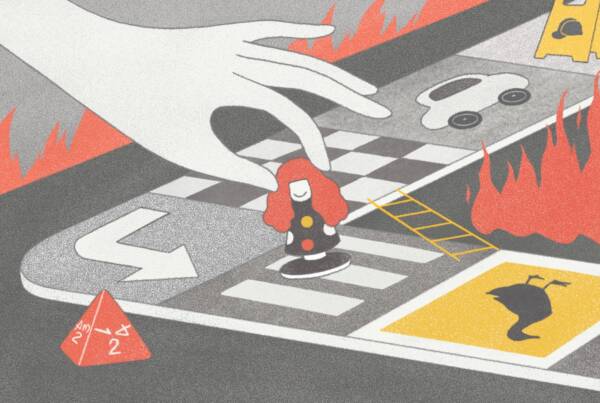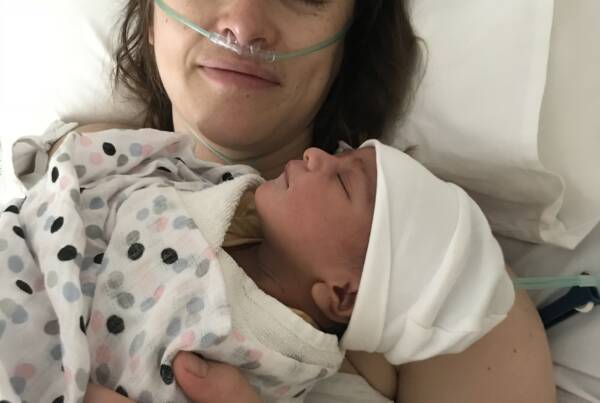Writing by Marley Warren // Photograph by Julie Young
Writing by Marley Warren // Photograph by Julie Young
When somebody has the flu, we understand what that means. If somebody breaks their arm, we understand that too. But when somebody suffers from a mental illness, most of us don’t understand what that means. I was one of those people. Growing up I knew a lot people who suffered from mental illnesses. I knew people who suffered from depression, anxiety, and bipolar disorder, and to be honest, I didn’t get it. I didn’t understand why these people couldn’t just “get over it”. To me, anxiety was feeling a little nervous about a speech you had to give or worrying about an important exam at school or university. Being a generally calm, cool, and collected person, I had no idea of the extent to which these mental illnesses could control and affect a person’s life. So the world decided to show me.
A few years ago, on what seemed to be a relatively normal morning, I got out of bed, got ready for work, got in my car and started driving. As I was driving I became aware of a strange pressure through my chest, like someone was squeezing me too tight and I felt like no matter how hard I tried I just couldn’t get enough air. As I got closer to work the feeling intensified until suddenly my heart exploded. Or least that’s what it felt like. My pulse started racing faster than I’d ever felt. My arms and legs started getting tingly and I could feel my face going numb. My fingers started to cramp up uncontrollably around the steering wheel and I pulled over on a busy highway in peak hour traffic and called an ambulance. I was terrified and felt like I was going to die.
When the paramedics arrived they asked me a lot questions but the general theme was if I was anxious about something. Was I struggling at work? Had I just broken up with my boyfriend? I told them I wasn’t anxious, that I’d never been anxious and this had to be something else. So I went to the hospital and was hooked up to heart monitors, had blood tests and chest x-rays, and was told I was a perfectly healthy person and perhaps I was just coming down with a virus.
After this incident a lot of people said to me, “It sounds like you had a panic attack”, to which I insisted they were wrong because I wasn’t an anxious person and had no reason to be panicked. I obviously had some kind of undiagnosed heart problem because I wasn’t going to be one of those anxious people who couldn’t just “get over it”. In the following months I admitted myself to hospital another two times for these “episodes” and had many more tests which continued to emphasise how physically healthy I was. Despite this, I was feeling worse and worse. I continued to feel like I was struggling to breathe, I had frequently occurring headaches, I was paranoid about every little ache or pain I experienced and I became nervous about leaving my house in case I experienced one of these embarrassing episodes in public.
Finally, I started to consider that my issues may in fact be related to my mental health. I know they say you shouldn’t Google your symptoms but I discovered that, although many of my symptoms could be a heart attack, almost every symptom I experienced was also a symptom of anxiety. Accepting that I’d become “one of those anxious people” wasn’t easy, but once I did I could start learning about how to get better. I read some fantastic books and articles about anxiety to educate myself on the symptoms of anxiety. I learned to meditate and do yoga which helped me focus on and stabilise my breathing. I had hypnotherapy which helped provide me with some great mental strategies for coping with my anxiety. I learned about acupressure and natural remedies for easing symptoms of anxiety because I didn’t want to have to rely on medications for my illness. Lastly, I continued to see my doctor regularly to help put my mind at ease regarding any worries I still had about my physical health.
Anxiety, panic attacks, and other mental illnesses are not a sign of weakness. In fact, they are a sign that you’ve been trying to stay strong for too long. When I look back I can see that that is exactly what happened to me. In the couple of years preceding my illness I’d experienced a lot of major changes in my life. I’d moved house, left a long-term relationship, returned to university, and had a family member going through cancer treatment. At the time I thought I coped with all of these things but they caught up with me in the long run.
I’m one of the lucky ones. I’ve managed to make a near full recovery from anxiety. Sometimes there is still a voice in my head that worries about a strange physical sensation or tries to convince me that a mosquito bite is actually the start of a deadly disease, but there is now another much stronger voice that tells me not to worry and that I’m not dying. Because that’s what anxiety feels like sometimes: like you’re dying. That might sound extreme to someone who hasn’t experienced anxiety but that’s just how it is.
I get it now.







